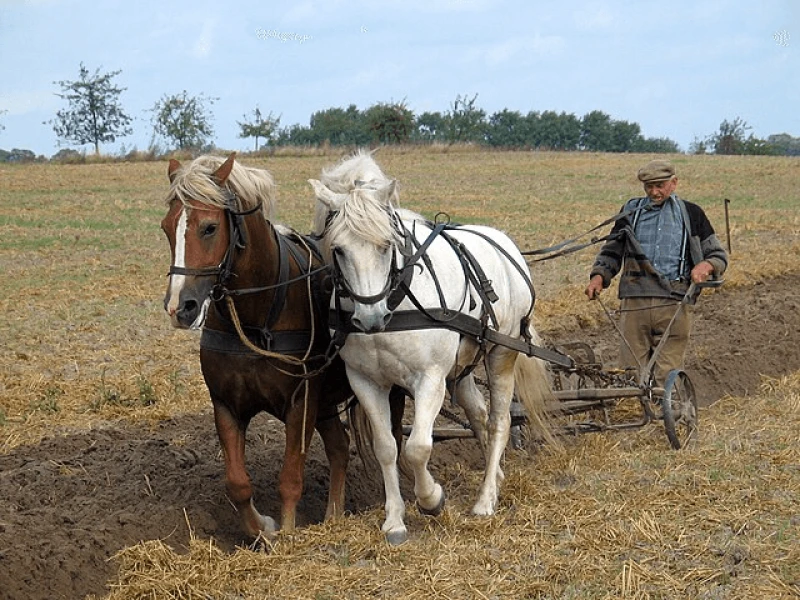Viewpoint: ‘What would a future without the weed-killer glyphosate look like?’
Viewpoint: ‘What would a future without the weed-killer glyphosate look like?’


Glyphosate helped end the reign of the weed once it was approved in 1974. Then, when combined with genetic modification to make corn, soybeans, cotton, and sugar beets tolerant to glyphosate, it became a transformative technology. It’s now the most widely used herbicide in the United States, employed on more than 90 percent of U.S. crop acreage.
Glyphosate’s cost-efficient and effective weed control has enabled farmers to implement conservation practices on millions of additional acres by moving from full tillage to conservation tillage, no-till, and/or cover crops. These practices create healthier soils, and result in cleaner water and less erosion. Moreover, these conservation practices contribute to climate resiliency by reducing carbon emissions.
Now, 40 years after that high school vo-ag class, and the evolution of conservation practices catalyzed by glyphosate, Aimpoint Research was recently asked to study the complexities of its impact on agriculture and outline what a future without glyphosate could look like.
U.S. farmers would bear a $1.9 billion burden in increased operating costs by reverting to conventional tillage.
…
A loss of glyphosate would result in a litany of unintended consequences, from higher production costs and less innovation to a reversal of decades of conservation and sustainability gains. This not only harms U.S. farmers, but everyone that consumes the food, fiber, and fuel they produce.
This is an excerpt. Read the original post here

 | Videos | More... |

Video: Nuclear energy will destroy us? Global warming is an existential threat? Chemicals are massacring bees? Donate to the Green Industrial Complex!
 | Bees & Pollinators | More... |

GLP podcast: Science journalism is a mess. Here’s how to fix it

Mosquito massacre: Can we safely tackle malaria with a CRISPR gene drive?

Are we facing an ‘Insect Apocalypse’ caused by ‘intensive, industrial’ farming and agricultural chemicals? The media say yes; Science says ‘no’
 | Infographics | More... |

Infographic: Global regulatory and health research agencies on whether glyphosate causes cancer
 | GMO FAQs | More... |

Why is there controversy over GMO foods but not GMO drugs?

How are GMOs labeled around the world?

How does genetic engineering differ from conventional breeding?
 | GLP Profiles | More... |

Alex Jones: Right-wing conspiracy theorist stokes fear of GMOs, pesticides to sell ‘health supplements’




 Viewpoint — Fact checking MAHA mythmakers: How wellness influencers and RFK, Jr. undermine American science and health
Viewpoint — Fact checking MAHA mythmakers: How wellness influencers and RFK, Jr. undermine American science and health Viewpoint: Video — Big Solar is gobbling up productive agricultural land and hurting farmers yet providing little energy or sustainabilty gains
Viewpoint: Video — Big Solar is gobbling up productive agricultural land and hurting farmers yet providing little energy or sustainabilty gains Fighting deforestation with CO2: Biotechnology breakthrough creates sustainable palm oil alternative for cosmetics
Fighting deforestation with CO2: Biotechnology breakthrough creates sustainable palm oil alternative for cosmetics Trust issues: What happens when therapists use ChatGPT?
Trust issues: What happens when therapists use ChatGPT? 30-year-old tomato line shows genetic resistance to devastating virus
30-year-old tomato line shows genetic resistance to devastating virus California, Washington, Oregon forge immunization alliance to safeguard vaccine access against federal undermining
California, Washington, Oregon forge immunization alliance to safeguard vaccine access against federal undermining The free-range chicken dilemma: Better for birds, but with substantial costs
The free-range chicken dilemma: Better for birds, but with substantial costs ‘You have to treat the brain first’: Rethinking chronic pain with Sanjay Gupta
‘You have to treat the brain first’: Rethinking chronic pain with Sanjay Gupta
